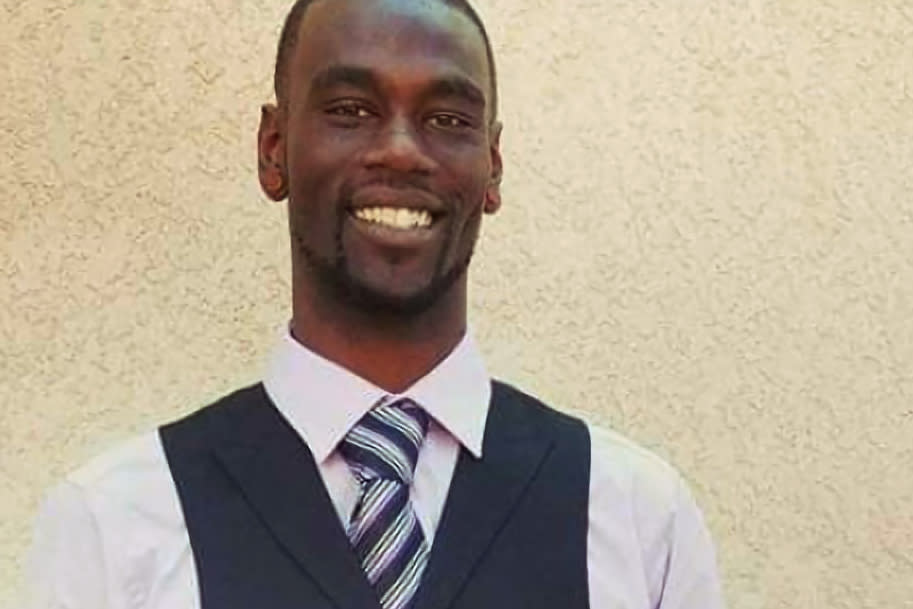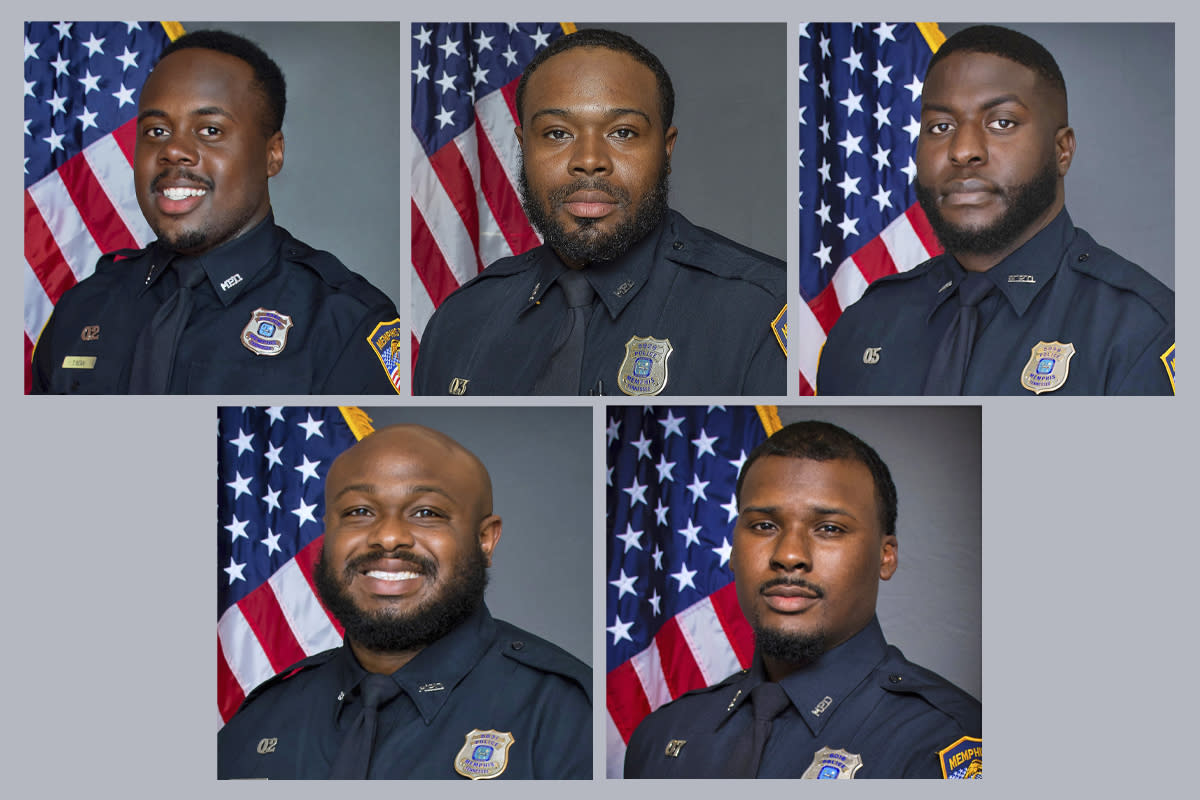The city’s murder rate was soaring and residents were clamoring for action when the Memphis Police Department announced a new anti-violence unit with a fearsome name.
“MPD’s New SCORPION UNIT Launched!” read a post on the department’s Facebook page in November 2021, along with a video clip showing a group of officers in tactical vests at a roll call.
The name stands for the Street Crimes Operation to Restore Peace In Our Neighborhoods.
Now it’s known for inflicting deadly violence on one of the city’s residents.
Authorities confirmed Thursday that officers from Scorpion were among those responsible in the beating death of Tyre Nichols after a Jan. 7 traffic stop.
“The Scorpion unit was involved,” Shelby County, Tennessee, District Attorney Steve Mulroy said Thursday at a news conference where he announced murder charges against five officers.
The attack on Nichols, which Police Chief Cerelyn “C.J.” Davis has called “heinous, reckless and inhumane,” has increased scrutiny of the city’s reliance on specialized units to suppress violent crime. This “hot spot” approach has been used by cities around the country — but some police reform advocates have said it contributes to use of force and weakens public trust.
This week, Davis announced a review of all of the police department’s specialized units, including Scorpion, in response to Nichols’ death. The police department declined to comment further on the Scorpion unit Thursday.
Nichols, 29, died Jan. 10, three days after the traffic stop in Memphis’ Hickory Hill neighborhood for alleged reckless driving, authorities said. A confrontation followed, which led to Nichols’ getting pepper-sprayed and running from officers before he was beaten, Mulroy said.
City officials said a video of the beating would be released to the public after 6 p.m. Friday.
Memphis’ Scorpion unit was created in October 2021 under the police department’s Organized Crime Unit. Made up of 40 officers divided into four 10-member teams, the unit was tasked not only with addressing violent crime, but also with investigating car thefts and gangs. The officers’ “crime suppression” assignments changed depending on where crime was worst.
Memphis set a record for homicides in 2021 for the second year in a row. The police department reported 346 in 2021 — up from 332 the previous year.
Mayor Jim Strickland promoted the new Scorpion unit as part of the solution in his January 2022 State of the City speech. He touted it as part of an anti-crime strategy that also included a gun violence intervention program and more money for the police department. In its first three months, Scorpion made hundreds of arrests and seized hundreds of cars and weapons, Strickland said.
Scorpion-led operations promoted on the police department’s Facebook page provide a glimpse into its work: arrests that begin with traffic stops, escalate into more serious confrontations and end with arrests of people for drugs and guns. The unit also busted an alleged stolen car chop shop after having tracked a stolen car, searched the scene of a burglary and found drugs and guns, and it took a suspected carjacker into custody.
Mark LeSure, a former Memphis police sergeant who retired in 2021, said he began to see a large number of relatively inexperienced officers’ being put on specialized units as a lot of the police force started leaving in recent years. Such units did not have enough senior staff members training the new officers, he said, adding that that was concerning to him.
“Rookies were getting put on specialized units where they had no business being,” he said.
LeSure said former colleagues still at the department have told him that the Scorpion unit, which launched after he retired, is known for having a “zero tolerance” policy on crime — which he said meant the officers “do what they can to arrest people.”
The officers charged in Nichols’ death were hired from 2017 to 2020. They are 24 to 32 years old.
E. Winslow “Buddy” Chapman, who was the director of the police department from 1976 to 1983, said he was surprised to hear that officers who were young and inexperienced were placed on a unit like Scorpion. When he led the force, officers were not considered for specialized units without at least seven years on the job, he said.
“You’re using officers to send a message that we’re here and we’re not going to tolerate criminal activity anymore,” said Chapman, who is the executive director of CrimeStoppers of Memphis and Shelby County, which offers cash for tips about crimes. “In that context, it can very easily go overboard, which it obviously did in this case.”
Chelsea Glass, an organizer with Decarcerate Memphis, which advocates for reform of the criminal justice system, said Scorpion was a “rebranding” of a common police tactic: a street crime-fighting team that relied on low-level traffic stops as pretexts to find violent criminals and weapons.
“They harass everyday residents, and they’re calling this high-level policing,” Glass said. “But it’s really just stop-and-frisk on wheels. It doesn’t matter what name you slap on it.”
Keedran Franklin, a Memphis community organizer, said Scorpion was like other specialized police units — including the county-run Multi-Agency Gang Unit — in that the officers seemed to stoke fear and distrust by the way they confronted people.
“The way they move in unmarked cars, looking like regular guys, bumping to rap music, they got on hoodies, they’re really looking the part, like they’re a part of the community, but they’re police,” Franklin said. “Then someone maybe slips up, smokes weed or doesn’t have their seat belt on or a headlight is out, and they jump out and stop them and want to go through their car.”
Only after the officers got out of their cars would people see “SCORPION” on the backs of their vests.
“They’re their own internal little gang,” Franklin added. “When they turn them loose on the streets, how does that affect ordinary citizens?”
Source: Read Full Article

